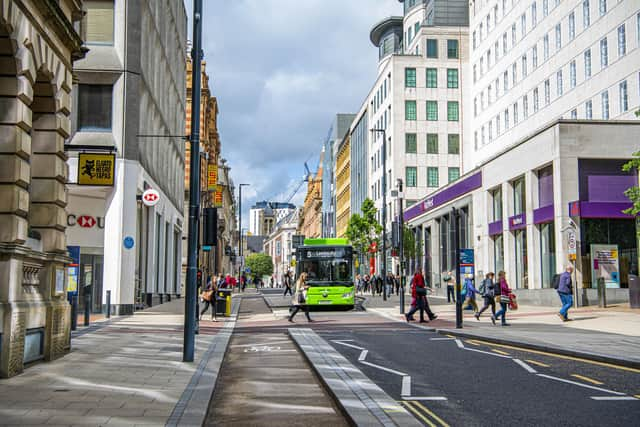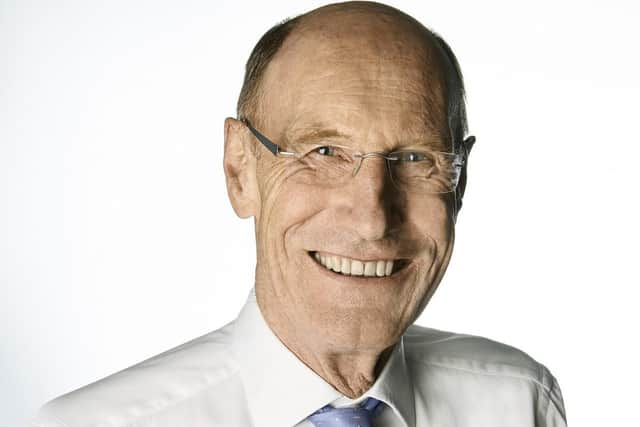Leeds should consider new charge for motorists to raise money for public transport, experts claim
The National Infrastructure Commission (NIC) has published a new report which states £22bn is needed to upgrade transport networks in major cities across the country by 2040 and two thirds of that money should be handed to Leeds, Manchester, Birmingham and Bristol.
It said investments in tram and rail networks would benefit these cities, but local leaders should decide how that funding is spent and be given the power to raise more money locally, by imposing new taxes or introducing charges for motorists.
Advertisement
Hide AdAdvertisement
Hide AdLondon’s congestion charge or the Workplace Parking Levy – a charge imposed on employers who provide workplace parking in Nottingham –could be rolled out in those cities to reduce car usage, cut congestion and raise up to £50m a year, the NIC added.


Sir John Armitt, NIC Chair, said: “Growing the size and productivity of Leeds will help rebalance the country’s economic geography as well as create more well paid jobs locally.
"Better public transport and easing traffic congestion is key to that. Leeds is one of four city regions with a clear case for significant government investment in a step change in transport capacity."
It comes after Leeds abandoned plans to introduce a clean air zone in 2020, claiming it was “no longer required” because there had been a significant improvement in the air quality.
Advertisement
Hide AdAdvertisement
Hide AdIt is still the largest city in Western Europe without a light rail or metro system and more than 60 per cent of residents cannot reach the city centre by public transport within 30 minutes.


But West Yorkshire Mayor Tracy Brabin has promised to bring a mass transit network to the region by 2040. The design team is considering a number of possible routes and trying to decide on a mode of transport, as it considers trams, tram-train vehicles and modified buses.
Rishi Sunak said the Government will provide £2.5bn for that project and upgrade and electrify railway lines linking Leeds to the likes of Sheffield and Hull.
Those promises are set out in the Prime Minister’s Network North plan, which he announced after scrapping the northern leg of HS2 earlier this month.
Advertisement
Hide AdAdvertisement
Hide AdThe NIC said that plan is lacking important details, such as the proposed delivery schedule for each project, and the Government needs to set out “a new comprehensive and long-term strategy”.
The commission also said the decision to scrap phase two of HS2 “leaves a major gap in the UK’s rail strategy around which a number of cities have based their economic growth plans”.
In its 222-page report, the NIC also stated billions of pounds of additional investment is needed to ensure the Government can achieve its target of reducing greenhouse gas emissions to net zero by 2050.
Gas boilers, which currently heat 88 per cent of English buildings, need to be phased out and replaced by “highly efficient” heat pumps, the NIC said, as this will slash emissions and energy bills.
Advertisement
Hide AdAdvertisement
Hide AdThe Government should provide up to £4bn a year to cover the full cost of heat pump installations and energy efficiency upgrades in low-income homes, as well as subsidies of up to £7,000 to other households which agree to install the low-carbon heating devices, the commission added.
Sir John told the Government has set itself a target of installing 600,000 heat pumps per year by 2028, but it is currently struggling to hit 60,000 a year.
“It is not cutting the mustard at the moment so therefore there has to be a significant improvement,” he said.
It comes after Mr Sunak watered down several environmental policies last month and announced that around 20 per cent of households will be exempt from having to switch from gas heating to save them from the costs.
The Government has 12 months to respond to the NIC report.